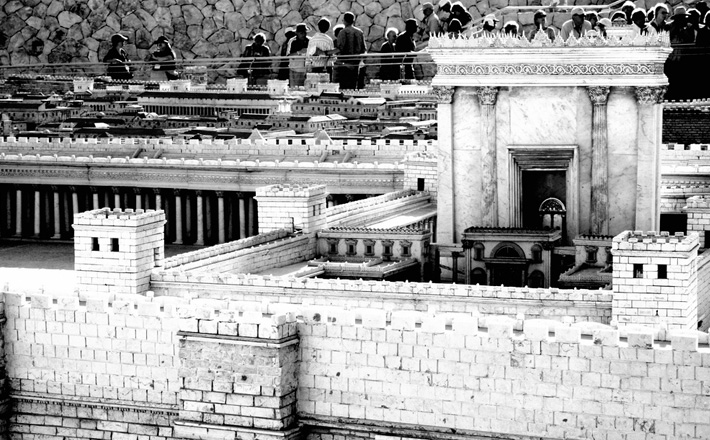Commentary on 2 Thessalonians 3:6-13
“The one who is unwilling to work, shall not eat” (2 Ths 3:10; NIV2011).
In today’s heated climate of disputes over universal healthcare and a social safety net, this verse has seemingly taken on a life of its own. Opponents dispute the meaning of this verse and quarrel over people’s intentions and probable outcomes. There is no question that, while some of the stranger apocalyptic elements of 2 Thessalonians may be avoided as undignified, this passage has never suffered for adherents.
The key focus of the passage, however, should not surprise the one who has been paying attention. Both verses 6 and 11 use a rare term that only occurs in these two verses of the New Testament to describe the problematic ones, and while many translations have opted for “lazy” or “idle” on the principle that these people are refusing to work, classically this adverb comes from the word group for “disorderly” or “disruptive” (hence the NIV2011 opting to double-translate it as “idle and disruptive”). Taken in its normal meaning, suddenly the picture opens up that these may well have been the same troublemakers from chapter 2, causing the theological earthquakes and distress. Indeed, the picture Paul paints of these troublemakers is not simply that they are lazy or won’t work, but that they actively work trouble for the church (v. 11) as busybodies and meddlers in things which they have no business.
Verse 11 gives us one of Paul’s fun plays on words that help us realize his rhetorical brilliance. These disruptive ones will not “work” (ergazomenous), instead they work mischief (periergazomenous), building the counter to the positive of what they should be doing. The characterization in verse 11 is crucial for getting this passage correctly, giving a threefold picture: they are disruptive, will not work, and are meddlers. Grammatically, the descriptions are positive, negative, positive, but lexically they are all negative. It is not that they are simply lazy, or heaven forbid, unable to work. These people are able to work, but use that ability to create chaos in the community. As such, they directly contradict the example of the apostles who by status would not have had to work but did anyway. This passage has nothing to do with whether a social welfare should be in place to catch the helpless in society; this is entirely concerned with those who should and can work but refuse and instead direct their energies to causing chaos in the community. This day and age when it is entirely possible, and disturbingly common, to work full time — or more than full time — and still not earn a living wage, Christians need to be profoundly careful with our rhetoric about those who depend on welfare for survival. We should be fighting for justice and help for those in that position, rather than carelessly branding people with this passage.
This emphasis on “work” terminology also fits with the book. In 1:11, Paul prayed that God would “bring to fruition your every desire for goodness and your every deed prompted by faith.” Then in 2:17 he prayed that God would “strengthen you in every good deed and word.” In this passage, he speaks of the apostles’ “working” in verse 8, gives his warning against an unwillingness to “work” in verse 10, has the play on “work”/”work mischief” in verse 11, and urges the troublemakers to settle down and “work” in verse 12. In a mere 47-verse epistle, this root for “work” appears 7 times. It would seem that Paul wanted to impress on his congregation the importance of their deeds, that how they act shows the fulfillment of their calling. It is interesting that both his prayers that conclude his thanksgiving in chapter 1 and his theological section in chapter 2 focus on the fulfillment of good deeds by God’s grace. Good deeds, not presumption and meddling, ought to come as a response to grace. People needing welfare is not the problem. People causing chaos in the community is. If in the case of the Thessalonians it was due to their theology leading them to a presumption that they had been perfected and no longer needed to work, we should consider comparable situations of entitlement today, rather than take the path of simplistic rhetoric.
But what does the illustration of the apostles add to our understanding of the passage? For the preacher, this is an awkward one, because congregations can and have taken it to mean that they shouldn’t have to pay their pastor or that ministers have been guilted into not seeing the ministry they do as genuine work. Paul, as a church-planting apostle, refused to play into the patronage games of his culture, working to avoid the entanglements and obligations that receiving gifts would entail upon him. We see elsewhere in his correspondence, however, that the Philippian church supported him in his ministry, so his statements here in verses 7-9 ought not be taken as an absolute principle. Where the gospel would be bound and muddled if he received gifts or pay, Paul refused. The gospel is always to be a free gift. But in some ways the argument here is not all that different from that of 1 Corinthians 4, where members of the congregation appear to be surpassing their leaders in entitlement. Paul reminds them that instead they ought to imitate their leaders (the same language of imitation appears in both texts, interestingly enough).
The gospel is a free gift, but it should produce a life of good works that build the community. Where meddling, gossiping, entitlement, and other disruptive behaviors flourish, the church is in grave danger, and Paul’s warning in this text is directly applicable. We are not to outstrip our Savior who had all rights and gave them up for our sake and our salvation.


November 17, 2013